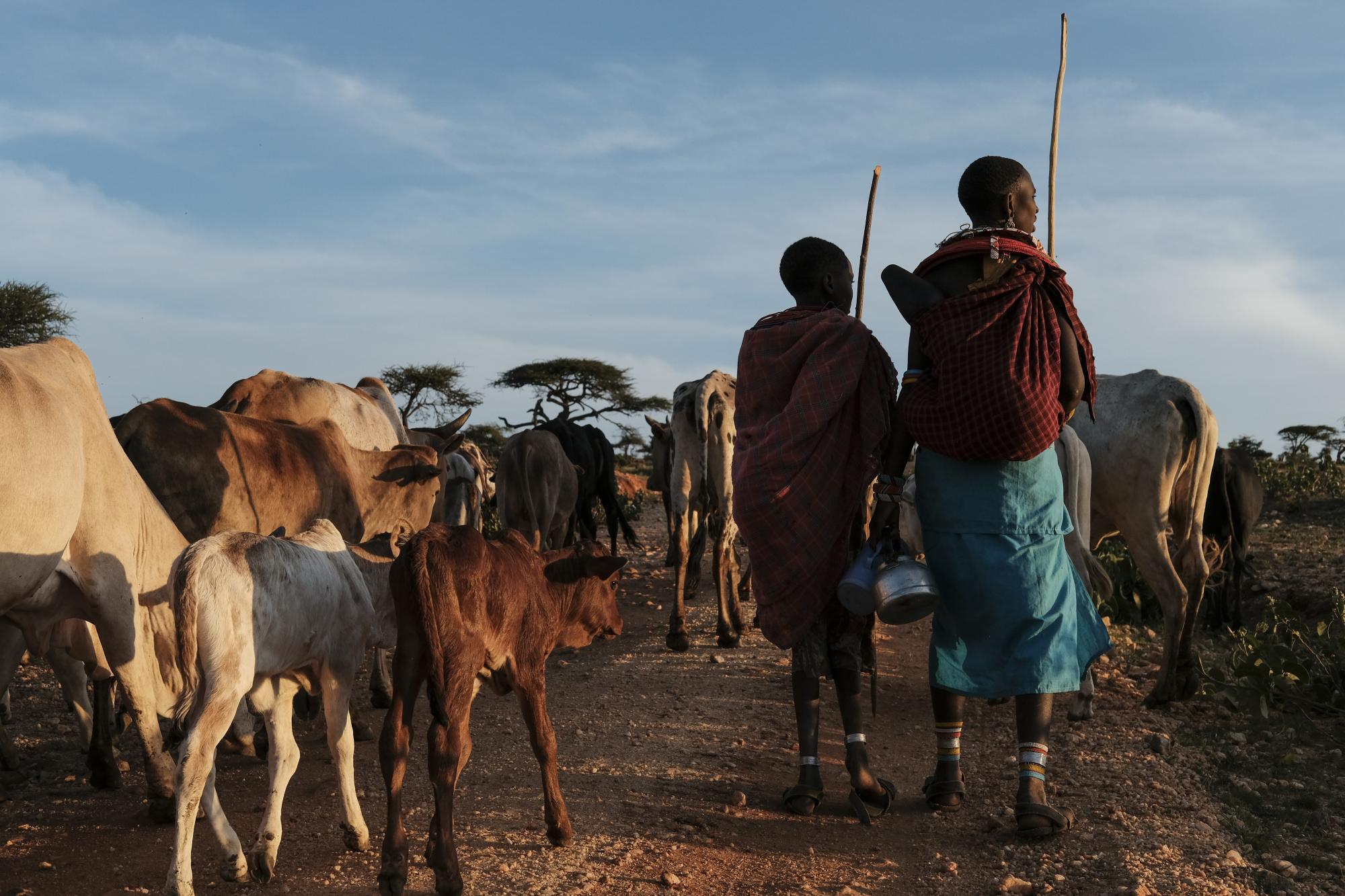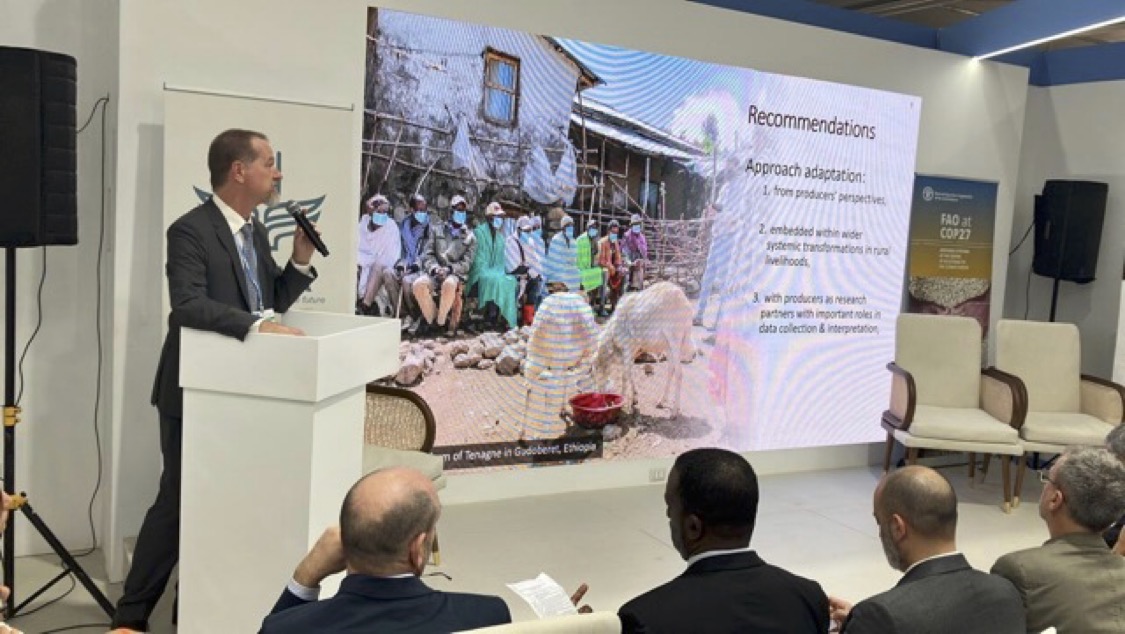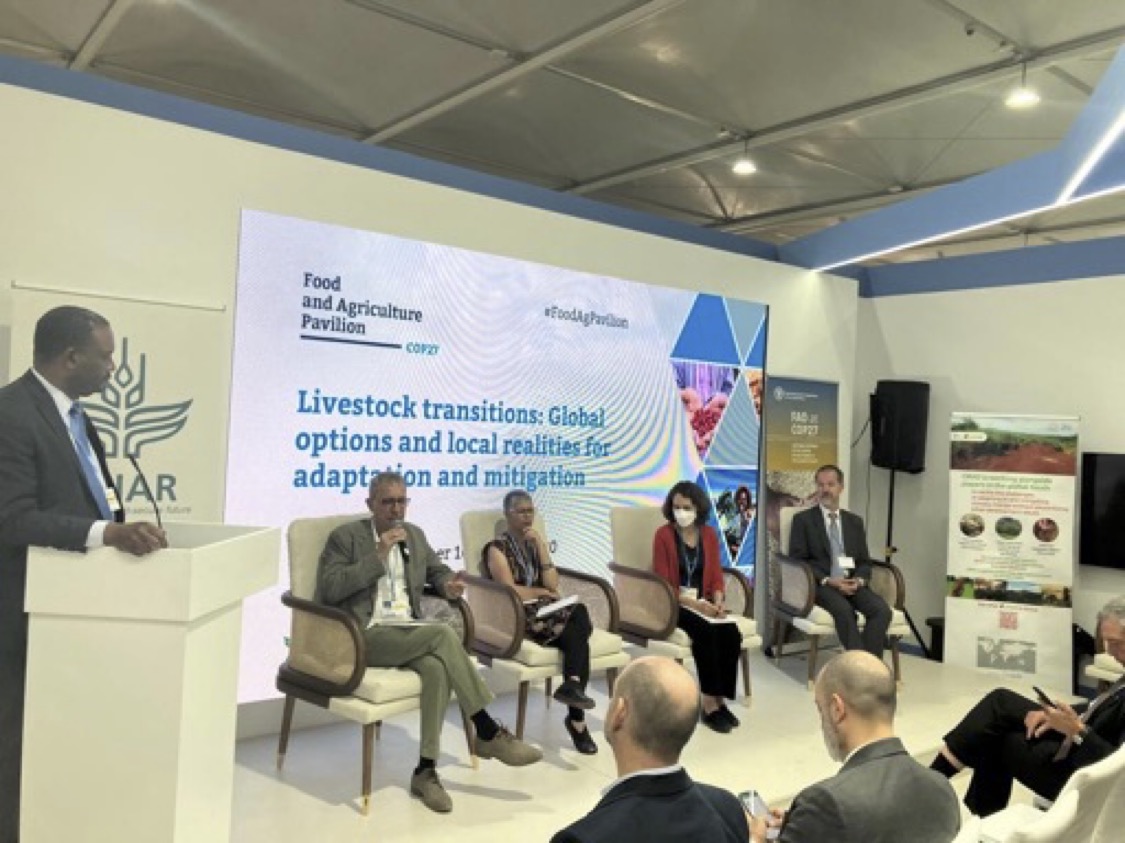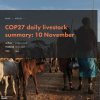
COP27 daily livestock summary: 10 November
Core message
Livestock systems will play a critical role in achieving climate adaptation goals as well as emissions reduction for food systems. However, there is no one-size-fits-all approach to addressing climate change within livestock systems. This was the key message coming from the Food and Agriculture pavilion's session on Livestock transitions: Global options and local realities for adaptation and mitigation.
The session was organized by the International Livestock Research Institute (ILRI), CGIAR Research Initiative on Livestock and Climate, Alliance of Bioversity and CIAT and Accelerating the Impact of CGIAR Climate Research for Africa (AICCRA)
Presentations followed by a Q&A covered how livestock systems can take on their critical role in achieving climate adaptation and emissions reduction for food systems. Panellists representing the Americas and East Africa shared key messages on the necessary climate actions in livestock systems needed for different areas, where strategies are tailored to local needs and contributing to global targets where appropriate.
Next, French Agricultural Research Centre for International Development (CIRAD) climate change officer, Vincent Blanfort, and Institute of Forest and Agricultural Management and Certification, Isabel Garcia-Drigo, shared how Amazonian livestock systems are being improved to decrease GHG emissions. Blanfort explained that the fight between deforestation and the development of agriculture is site-specific to Brazil. Garcia-Drigo highlighted Amazon Brazilian livestock farmers who are lowering emissions by using pre-existing best practices and feasible technologies. Both presentations shared new carbon emissions monitoring tools that revealed the success of moderate intensification livestock systems in the Amazon and provided data to aid policymaking and green financing.
ILRI principal scientist, Todd Crane, shifted the conversation from South America to Africa where livestock has been integral to the ecologies of Africa for millennia. Despite African policymakers and producers prioritizing climate adaptation, donor energy has been spent on mitigation. In Africa, adaptation is a priority because of environmental influence on ecology and human nutrition insecurity.
“Climate change is about livelihoods, not just climate.”

Adaptation must be integrated into farmers’ livelihoods and day-to-day practices because other than climate, adaptation tends to drivers like economic and labour demands and gender equity.
Crane also shared ILRI’s adaptation strategies on positive deviance and participatory adaptation analysis that looks for where livestock farmers are already overcoming climate change, listening to these innovators and learning what they are doing to making these practices more efficient and widespread.
When asked what specific adaptation measures ILRI is taking during the Q&A, Crane further emphasized:
“We are not promoting anything. We are reversing the tables. So much effort is wasted trying to find the adaptation technology to promote and implement before realizing it’s not working. We have to look at the practices already working, compliment them with research and then promote.”

University of Florida Institute of Food and Agricultural Sciences Associate (UF IFAS) Vice President and the session’s moderator, Gbola Andesogan, summarized the session nicely:
“To improve carbon emissions and adaptation, we have to look at whole livestock systems, find solutions that already exist in the hands of the farmers and gauge new technologies on how relevant and feasible it is to implement them.”
Partners for this event include the Food and Agriculture Organization of the United Nations, The Rockefeller Foundation, UF IFAS, Global Food Systems Institute, CIRAD, Alliance of Bioversity & CIAT and IMAFLORA.
